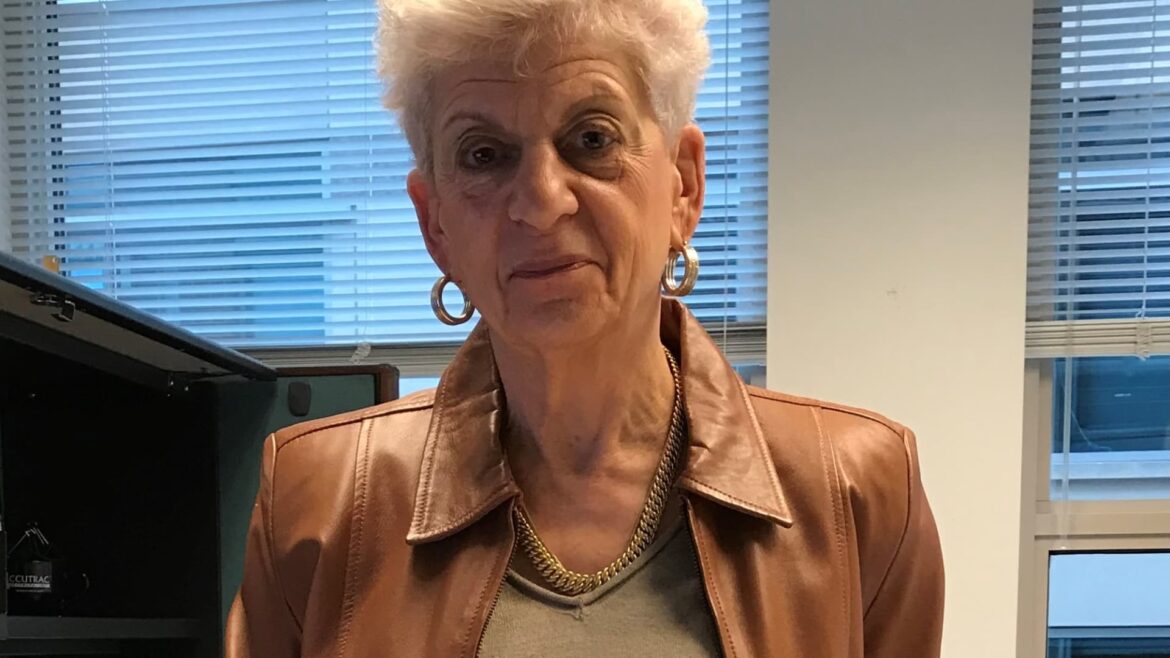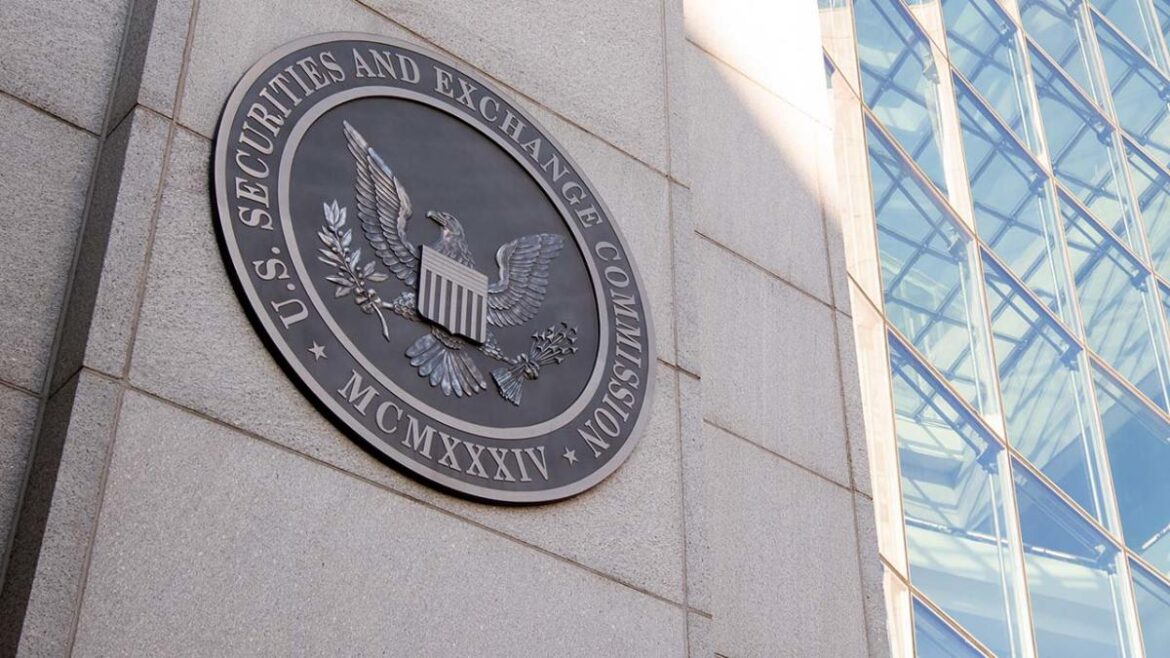 Two individuals, a woman and a man, were captured in Argentina on charges of having perpetuated a Ponzi scheme that moved over $400 million in cryptocurrency in Brazil. The operation managed to track the couple’s whereabouts with the help of the Argentine Federal Police and Interpol. Argentina Captures Couple Accused of Orchestrating a $400 Million […]
Two individuals, a woman and a man, were captured in Argentina on charges of having perpetuated a Ponzi scheme that moved over $400 million in cryptocurrency in Brazil. The operation managed to track the couple’s whereabouts with the help of the Argentine Federal Police and Interpol. Argentina Captures Couple Accused of Orchestrating a $400 Million […]
Source link
scheme
Criminals Behind $2M School Theft Admit Guilt: Crypto Mining Scheme Uncovered
In recent developments, two California school district officials have admitted guilty to stealing up to $1.8 million and misappropriating electricity to finance and operate a clandestine crypto-mining operation.
The United States Department of Justice (DOJ) disclosed that Jeffrey Menge, former Assistant Superintendent and Chief Business Officer of Patterson Joint Unified School District, and Eric Drabert, the district’s IT Director, pleaded guilty to charges of theft concerning programs receiving federal funds.
Fraudulent Billing Scandal
According to the DOJ’s statement, Menge, as Assistant Superintendent, hired Drabert as the school district’s IT director around 2020.
Together, they orchestrated a series of illicit activities to siphon funds from the district. Menge reportedly utilized a Nevada-based company called CenCal Tech LLC, which he controlled, as a front for the crypto scheme.
The investigation revealed that to circumvent restrictions on conducting interested party transactions, Menge created a fictitious executive, “Frank Barnes,” to represent CenCal Tech.
Through this setup, it is alleged that Menge and Drabert executed fraudulent transactions worth over $1.2 million, involving practices such as double billing, overbilling, and billing for undelivered items.
Illicit Crypto Mining Operation Unveiled
Diversifying their criminal activities, Menge and Drabert went beyond financial embezzlement, according to the US Department of Justice.
The law enforcement agency stated that the individuals utilized “high-end graphics cards,” school district property, and electricity to establish and operate a crypto mining farm within the school district.
The illegally mined crypto assets were then redirected to wallets under their control. Additionally, Menge is alleged to have exploited school district-owned vehicles, acquiring a Chevy truck at a discounted price and selling it for personal profit while using a Ford Transit van as his vehicle.
The overall magnitude of the embezzlement was staggering. Menge misappropriated funds between $1 million and $1.5 million, while Drabert was found guilty of stealing between $250,000 and $300,000.
The DOJ revealed that the ill-gotten gains were used for “lavish” personal expenses. Menge indulged in remodeling his residence, purchasing luxury vehicles, including a Ferrari sports car, and funding other personal endeavors. Drabert, on the other hand, utilized stolen funds to renovate his vacation cabin and for various personal expenses.
The guilty pleas by Jeffrey Menge and Eric Drabert, former officials of Patterson Joint Unified School District, shed light on a shocking case of embezzlement and crypto mining fraud within the education system.
Featured image from Shutterstock, chart from TradingView.com
Disclaimer: The article is provided for educational purposes only. It does not represent the opinions of NewsBTC on whether to buy, sell or hold any investments and naturally investing carries risks. You are advised to conduct your own research before making any investment decisions. Use information provided on this website entirely at your own risk.
DOJ charges trio in sim-swap scheme potentially linked to $400 million FTX crypto heist

The United States Department of Justice (DOJ) has taken legal action against three individuals—Robert Powell, Carter Rohn, and Emily Hernandez—for their involvement in a Sim-swapping scam in November 2022. The charges brought against them include fraud and identity theft.
This case has raised eyebrows due to its potential connection to the 2022 FTX hack, where the crypto exchange suffered a significant $400 million loss around the period it declared bankruptcy. Initial suspicions pointed towards the possibility of an insider job, with founder Sam Bankman-Fried (SBF) even facing accusations.
The indictment reveals that Powell, Rohn, and Hernandez obtained personal information from approximately 50 individuals. Subsequently, they manipulated service providers into transferring the victims’ details to their own devices. Armed with this information, the trio accessed authentication codes for financial accounts and crypto wallets.
Notably, Hernandez employed a fake ID belonging to an FTX employee to impersonate the individual at AT&T, successfully gaining access to their account. This move allowed them to obtain verification codes for accessing FTX’s crypto wallets and transferring over $400 million in digital assets.
While the indictment did not explicitly mention FTX, it highlighted that the $400 million theft took place between November 11 and 12, 2022—coinciding with the timeline of the FTX incident.
Blockchain analytical firm Elliptic stated that “FTX is [likely] the ‘Victim Company-1′” named in the indictment, adding that the recent movements of the stolen crypto assets may indicate they are no longer in the possession of the accused trio.
FTX bankruptcy managers have yet to respond to CryptoSlate’s request for comment as of press time.
This indictment emerges at a time when sim swap attacks are on the rise, mainly targeting prominent entities within the cryptocurrency space. Threat actors use these attacks to exploit social media accounts to promote phishing campaigns.
“It’s 2024 and we are still seeing far too many teams getting SIM swapped or phished on a regular basis resulting in millions stolen,” blockchain investigator ZachXBT said.
More recently, the U.S. Securities and Exchange Commission (SEC) experienced a sim-swap incident, leading to an exploit on its X account just last month.
Owners of famous Philly cheesesteak chain sentenced in $8M tax fraud scheme
The owners of the famous Philadelphia Cheesesteak restaurant Tony Luke’s were sentenced to prison for tax fraud on Thursday after concealing over $8 million over the course of a decade.
The U.S. Department of Justice announced the owners, 57-year-old Nicholas Lucidonio, and 84-year-old Anthony Lucidonio Sr. were each sentenced to 20 months in prison plus three years of supervised release.
The Lucidonios owned and operated Tony Lukes, which is a popular cheesesteak and sandwich shop in South Philadelphia.
Between 2006 and 2016, court documents show, the two men hid over $8 million in cash receipts from the Internal Revenue Service (IRS), and only deposited a portion of the cash they received into restaurant business accounts.
MCDONALD’S SPINOFF COSMC’S SAW TWICE AS MANY VISITS AS REGULAR RESTAURANT IN FIRST MONTH: REPORT

By only depositing a portion of the cash, the DOJ said, the company’s accountant was provided incomplete information, resulting in the accountant filing false tax returns.
The DOJ also said the Lucidonios were also convicted of employment tax fraud, which was committed when the two men paid employees “off the books” in cash.
SOCIAL SECURITY RECIPIENTS COULD GET HIT WITH A SURPRISE TAX BILL THIS YEAR

Most employees were paid a portion of their wages on the books to evade being caught, and the rest of the wages were paid in cash without things like federal income tax, Social Security and Medicare taxes being paid to the IRS.
The Lucidonios did not report the cash wages to their accountant, the DOJ said, causing the accountant to prepare false quarterly employment tax returns with the IRS.
REMOTE WORKERS FACE A DOUBLE TAXATION THREAT

The issue became known in 2015, when the Lucidonios and another individual got into a dispute over Tony Luke’s franchising rights.
During the dispute, the Lucidonios became concerned their tax fraud scheme would be exposed, so they had the prior year’s tax returns be amended to show higher reported sales, the DOJ said.
Still, the two men continued hiding their payroll tax scheme, which resulted in a loss of $1,321,042 to the U.S.
Original article source: Owners of famous Philly cheesesteak chain sentenced in $8M tax fraud scheme
Jet-setting bogus exec sentenced to 17 ½ years in $40M trucking Ponzi scheme
He tried to ride off into the sunset with $40 million in ill-gotten gains, but all he got was a one-way trip to prison.
A slick-talking, phony-business executive has been sentenced to 17 ½ in prison for ripping off hundreds of investors in a sham trucking company that federal prosecutors say turned out to be a $40 million Ponzi scheme.
Franklin…
Master your money.
Subscribe to MarketWatch.
Get this article and all of MarketWatch.
Access from any device. Anywhere. Anytime.
Already a subscriber?
Log In
FBI Busts Indian Citizen Group For $15 Million Crypto-To-Cash Money Laundering Scheme
In a recent crypto investigation, the US FBI successfully infiltrated a group of Indian citizens suspected of engaging in illicit activities involving the exchange of cryptocurrency for over $15 million in cash.
The alleged transactions took place at various locations in Westchester County, with the group catering to customers seeking anonymity for their activities.
Crypto Crime Unveiled
According to recent reports, five out of the six suspects were apprehended on October 17 and subsequently charged in US District Court, White Plains.
The charges primarily revolve around operating an unlicensed money-transmitting business. The investigation unfolded with the assistance of law enforcement agents who monitored 80 “cash hand-offs”.
The FBI’s scrutiny began in April 2021 when they identified a suspect operating within the “dark web” criminal marketplaces.
Although the individual remains unnamed in the criminal complaint, they are believed to be a co-conspirator of the arrested local suspects. Notably, the suspect offered to ship cash to customers in exchange for cryptocurrency.
According to the complaint, the unidentified co-conspirator disclosed to an undercover officer in January that some of their customers were involved in drug sales, while their wealthier clients were hackers.
The co-conspirator claimed to have amassed approximately $30 million over three years by exchanging cash for cryptocurrency.
In February, an individual responsible for mailing packages of cash on behalf of the co-conspirator was arrested. The complaint reveals that this individual had been receiving sacks of cash from various individuals, three times a week for 18 months, at a Westchester County post office. The cash bundles ranged from $100,000 to $300,000.
In a bid to receive leniency during sentencing, the aforementioned individual agreed to assist the FBI with their investigation. Over several months (from February 10 to September 27), they allegedly participated in 80 controlled cash pick-ups amounting to $15,067,000.
One of the arrested individuals, Raju “Jay” Patel from Flushing Queens, played a significant role in the operation. The complaint alleges his involvement in 58 cash transfers totaling $10.8 million.
Raju would collect cash from various locations in George, Massachusetts, North Carolina, Pennsylvania, and South Carolina. Subsequently, Raju allegedly coordinated the transfers with the co-conspirator and the FBI’s confidential source.
On March 6, Raju allegedly arranged an exchange of $250,000 at a Tarrytown supermarket parking lot. Surveillance conducted by law enforcement agents captured Raju leaving his Queens apartment with an orange cloth bag, which he handed over to the FBI’s confidential source upon arrival in Tarrytown. The bag reportedly contained $249,715.
Illicit Cash Exchange
Similar exchanges took place at a parking lot in Port Chester, further implicating the suspects involved. On August 6, Shaileshkumar Goyani allegedly handed over a bag containing $114,000 to the FBI’s confidential source.
Apart from Goyani, the complaint identifies Brijeshkumar “Samir” Patel, Hirenkkumar Patel, Naineshkumar Patel, and Nileshkumar Patel as additional suspects in the case.
All the suspects are charged with operating an unlicensed money-transmitting business under New York and federal laws.
According to an affidavit by FBI agent Lawrence Lonergan, such unlicensed money-transmitting businesses operate as shadow banks, enabling funds to pass through without undergoing the scrutiny imposed by Congress on the United States financial system.
While the allegations against Goyani’s crypto fraud remain unproven, his defense attorney, Daniel A. Hochheiser, emphasizes that his client has not been indicted by a grand jury. Hochheiser further stated that if and when an indictment is issued, Goyani intends to enter a plea of not guilty.
Featured image from Shutterstock, chart from TradingView.com
FBI charges six individuals in multimillion-dollar Bitcoin money-laundering scheme

The Federal Bureau of Investigation (FBI) has charged six individuals in connection to an unlicensed money-transmitting business involving crypto as a money laundering tool.
Court filings dated Oct. 18 indicate that the accused individuals worked to convert Bitcoin and other cryptocurrencies to cash at least between July 2021 and September 2023. The conversion process involved cash shipped via the U.S. postal system in exchange for cryptocurrency as well as in-person cash pickups.
The six accused individuals are Shaileshkumar Goyani, Brijeshkumar Patel, Hirenkumar Patel, Naineshkumar Patel, Nileshkumar Patel, and Raju Patel.
The FBI charged those individuals with one count of conspiracy to operate an unlicensed money-transmitting business and one count of operating an unlicensed money-transmitting business. The case text requests a warrant for the individuals’ arrests, indicating that they had not yet been brought into custody at the time of the court filing.
The case is proceeding in the Southern District of New York, where the criminal activity largely took place. New York has stringent crypto rules as well as regulations that require anyone transmitting money to obtain the relevant license.
Two others were involved in conspiracy
Though six individuals have been charged, they do not make up the entire operation. One anonymous co-conspirator began to communicate with law enforcement after being contacted by an undercover officer around January 2023.
The co-conspirator, who operated on darknet markets and peer-to-peer crypto exchanges, revealed he had earned $30 million in crypto by swapping funds. He also stated that many clients of the service were drug dealers and hackers.
Another individual who mailed cash on behalf of the co-conspirator was later arrested by law enforcement and became a confidential source. That individual eventually began to participate in controlled cash pickups with law enforcement.
Those two individuals were charged separately in August 2023 and February 2023. The latter could receive a reduced sentence due to his cooperation with authorities.
The FBI has a track record of seizing cryptocurrency involved in illegal activities. Notably, the agency has seized $3.36 billion from Silk Road fraudster James Zhong and $3.6 billion from Bitfinex hackers Ilya Lichtenstein and Heather Morgan since 2022.
The post FBI charges six individuals in multimillion-dollar Bitcoin money-laundering scheme appeared first on CryptoSlate.
Marjorie Bloom was the victim of a “tech support” scam. She lost $661,000 in the fraud.
Marjorie Bloom
In the spring of 2021, Marjorie Bloom waited for a phone call that would never come.
Over the course of the previous month, the retiree had wired hundreds of thousands of dollars into cryptocurrency per the suggestion of someone she believed to be a trusted confidant. The man claimed to be a “fraud investigator” at PNC Bank, where she’d been a longtime customer.
At his behest, Bloom, a widow who is now 77, liquidated her nest egg — savings, stocks, an annuity — for a total of $661,000.
More from Personal Finance:
Student loan borrowers at risk of scams as payments restart
Social Security’s trust funds are running dry: 4 things to know
This account is like an ‘extra strength’ Roth IRA
The action was supposedly preventative: The “investigator” persuaded Bloom that criminals, using stolen personal data, were in the process of pilfering her life savings. To protect her money, he said, she had to move it quickly — and covertly. Divulging the problem to anyone, even her three children, could compromise their efforts, he said.
Had she alerted her children, she might have avoided the scam: Bloom’s daughter, Ester, is the deputy managing editor for CNBC Make It. (Ester Bloom put CNBC in touch with her mother but was not involved in the reporting or editing of this story.)
The “investigator,” though very convincing, turned out to be a wolf in sheep’s clothing. Bloom, a retired civil servant, was ensnared in a “tech support” scam.
This type of fraud is increasingly common and largely targets older adults, who lost $588 million to tech support scams in 2022, according to the Federal Bureau of Investigation. Criminals persuade victims they have a serious computer issue such as a virus, then masquerade as computer technicians from well-known companies as a cover for theft. Often, they persuade victims to wire funds to fraudulent accounts.
So on that Friday morning in May 2021, Bloom eagerly awaited a call with instructions on how to access the life savings she had diligently taken steps to secure.
The hours ticked by. Growing nervous, she eventually called the “investigator.” His number had been disconnected. She called PNC, but the bank didn’t have a record of the employee.
“All of a sudden, this grayness lifted,” said Bloom, who lives in Chevy Chase, Maryland. “I realized I had been defrauded of everything.”
‘The money is there. The scammers know that’
Bloom’s experience reveals an unsettling reality at a time when technological advancement, little-understood investment options and a patchwork of protections in the U.S. financial system expose more older Americans to financial fraud.
Americans 60 and older lost $3.1 billion to cyber fraud in 2022, an 84% increase from 2021, according to the FBI. Losses have jumped ninefold in just five years, from $342 million in 2017, FBI data shows. Because fraud statistics are based only on reported incidents, its true scope may be far greater.
Older adults, many of whom have saved their entire careers for retirement, can have the most to lose. In addition to retirement savings, they might have other pots of income and wealth: home equity, Social Security payments, pension checks and, if widowed, maybe a life insurance payout.
“The money is there,” said Rebecca Keithley, a supervisory special agent in the FBI’s Economic Crimes unit and the bureau’s national program coordinator of the Department of Justice’s Elder Justice Initiative. “The scammers know that.”
Keithley — also the FBI’s national program coordinator for frauds and swindles — is not involved in the investigation of Bloom’s case.
Meanwhile, the U.S. is undergoing a massive demographic shift as an average of 10,000 baby boomers hit retirement age every day. This generation has shouldered more responsibility for their retirement preparations as employers began shifting away from pensions to 401(k)-type retirement plans decades ago.
Consumers ages 65 and older had an average of $232,710 in 401(k) plan savings in 2022, according to Vanguard Group, one of the nation’s largest retirement-plan administrators. Further, 65- to 74-year-olds had a net worth of more than $1.2 million, on average, in 2019, according to the Federal Reserve’s most recent Survey of Consumer Finances.

Fraud may deprive victims of funds for basic living expenses such as food and shelter, or for the travel and leisure they’d worked so hard to attain in their post-work life.
Beyond the immediate financial hit, fraud has several knock-on effects: Victims who raid their tax-preferred retirement funds may owe the IRS a hefty bill. Taking out a second mortgage or maxing out credit cards carry regular debt payments.
Older adults don’t have the same ability as younger victims to earn in the workforce, and it’s often challenging to recoup money from criminals or financial institutions.
“Most victims will say, ‘I’m devastated financially, I’m ruined,'” said Kathy Stokes, director of fraud prevention programs at AARP, an advocacy group for older adults. “But emotionally it’s as bad, if not worse.”
How criminals ‘hijack’ the aging brain
Tech support scams like the one Bloom suffered are an acute threat for older adults.
They are a type of “call center” fraud, which “overwhelmingly target” older adults, the FBI said. About half of people victimized by illegal call centers are 60 or older, and they experience 69% of the total financial losses relative to other age groups.
Nearly 18,000 Americans ages 60 and over reported being a victim of tech support scams in 2022, the FBI said. That’s more than any other type of elder fraud and almost doubled from 2020.
Victims 60 and older lost more to these scams than all other age groups combined, the FBI reported. The average person lost $33,000, though losses extended to over $1 million in some cases, the FBI said.
In Bloom’s case, her computer froze suddenly on April 22, 2021. A popup window alerted her to call a customer support phone number listed on the screen, supposedly for Microsoft.
Bloom then made a key mistake: She called the number, an action that real tech companies won’t ever ask of customers in a security pop-up warning.
During the call, a “Microsoft engineer” told her that foreign hackers had hijacked her computer and stolen sensitive personal data. Her financial accounts, he suggested, were also likely under threat.
When Bloom told him she banked with PNC, the engineer — who was really a con artist — transferred her to an accomplice posing as a PNC fraud investigator. The man convinced Bloom that there were pending transactions worth $29,000 tied to her bank account. Her money had to be moved without delay to a new account, the scammer urged.
None of it was true.

“I fell for it,” said Bloom, who retired in December 2017 after serving 42 years as a federal attorney, including stints at the Department of Energy and, most recently, the Pension Benefit Guaranty Corporation.
“I didn’t tell anybody,” Bloom added.
The appearance of an immediate threat is an “age-old psychological technique” common in frauds that tends to be “more successful with the aging brain,” said Keithley of the FBI.
In this technique, known as an “amygdala hijack” in reference to the brain’s fear and threat response center, criminals trigger strong emotional reactions that overwhelm the rational part of our brains. We act rather than think, a classic fight-or-flight response — in this case induced by nefarious social engineers, often part of sophisticated organized crime networks.
Older adults tend to be home more often, use landline phones and be generally unsophisticated about technology and safe online behavior — all of which make them vulnerable and therefore frequent targets, Keithley said.
The Covid pandemic was a disproportionate threat to older adults, keeping Americans indoors and quickly pushing them online. The health emergency “ushered in a new wave of exploitative practices targeted at older Americans,” U.S. Attorney General Merrick Garland said in a 2022 report to Congress.
‘Somebody should have asked’
Marjorie Bloom on a trip to Vietnam in 2019, before she was defrauded. Bloom expects she’ll have to make sacrifices, such as traveling less, after she lost her life savings in the scam.
Marjorie Bloom
Bloom, an avid traveler, is undeniably tough. In 2013, at 67 years old, she trekked to the base camp of Mount Everest, the world’s tallest mountain; the base camp alone sits at an altitude of about 18,000 feet.
But the scam tested her resolve.
A year after the fraud, Bloom set out on a road trip to North Dakota. Five days in, she had a panic attack that seized the right side of her body in pain. She canceled everything and went home.
“In retrospect, I think the entire ordeal was a fearful reaction to spending money,” Bloom said.
Before she realized she’d been scammed, Bloom had made five wire transfers within 28 days, amounting to $661,000, according to receipts of the transactions, which were reviewed by CNBC.
Much of those funds came from liquidating a stock portfolio — an inheritance from her parents — worth more than $400,000. She also liquidated the bulk of an annuity worth more than $200,000; if she’d kept it intact, it would have begun paying her a guaranteed income stream of about $2,700 a month for the next three decades, starting in 2023.
“This was my life savings,” Bloom said. “It’s what I was going to live on as a retiree.”
Hikers walk to Everest Base Camp in Nepal.
Kriangkrai Thitimakorn | Moment | Getty Images
When she discovered the loss, Bloom’s immediate thought was of her three kids: a “profound disappointment” at squandering the reserves she’d intended to bequeath them. Bloom had wanted to offer the same financial assistance to her children as her parents had provided for her. Now, much of that money is gone, she said.
Her second concern was for her own financial security. Bloom still receives regular checks from a federal pension and Social Security, now her main sources of retirement income. It’s enough to cover her mortgage, condo fee, car payment and other necessities — but the financial loss exposes Bloom to sacrifices nonetheless.
For one, she laments an inability to travel as frequently as she’d hoped in retirement. She is a member of the North Bethesda Camera Club and uses trips as an outlet for photography, a hobby that developed during her Everest expedition.
“I’m not starving,” Bloom said. “But I could do a lot more [if I hadn’t lost money].”
“I’ve lost a significant amount that I’ve worked for,” she said.
All of a sudden, this grayness lifted. I realized I had been defrauded of everything.
Marjorie Bloom
Maryland resident
Bloom sued PNC Bank — where she’d been a customer for over a decade — in May 2022 for full financial restitution and other damages, such as interest and attorney’s fees.
In her lawsuit, Bloom argued that the fraud was ultimately successful because PNC ignored “obvious red flags” and “textbook evidence” of financial exploitation raised by her wire transfer requests, which were inconsistent with her typical pattern of banking.
According to the lawsuit, the bank didn’t take steps to investigate or determine whether her money was at risk. The lawsuit claimed the bank acted negligently and breached its contractual duty of care.
“I’m retired … [and] I look my age,” Bloom said. “There’s just no doubt about it.”
“Somebody should have asked,” she added.
In February, a federal judge in the District of Columbia dismissed the negligence claim but allowed the claim for breach of contract to move forward in court.
Bloom and the bank settled the lawsuit in September. Bloom declined to disclose terms of the agreement to CNBC. (Bloom’s comments to CNBC for this story occurred in the spring, before the parties entered into settlement negotiations.)
A spokesperson for PNC Bank declined comment on the settlement.
Asked about the lawsuit in the spring, the bank said it acted within the scope of its legal duty.
Sergio Flores/Bloomberg via Getty Images
“PNC maintains a comprehensive set of security controls to help protect our customers from increasingly sophisticated fraud threats and, when possible, we do our best to recover funds on behalf of impacted customers,” a spokesperson told CNBC, when asked about Bloom’s case and statements about the bank.
“While PNC regrets any losses incurred by a customer, we disagree with the allegations in this case and believe we acted appropriately with respect to these transactions,” the spokesperson added.
‘You’re basically at the mercy of your bank’
Lawsuits such as Bloom’s are rarely successful, legal experts said. Outcomes hinge on a complex web of federal and state rules that govern banking and elder financial fraud.
For instance, there’s a distinction between “unauthorized” and “authorized” banking transactions.
Unauthorized transactions occur when criminals get hold of a customer’s personal information — a debit card number, let’s say — and buy something without approval. Customers are often reimbursed in such instances.
However, in Bloom’s case, she made the wire transfers. Transactions initiated by a customer — even a victim duped by scammers — are generally considered “authorized,” said Carla Sanchez-Adams, senior attorney at the National Consumer Law Center. And such transactions carry weak customer protections, she said.
“You’re basically at the mercy of your bank,” Sanchez-Adams said.
Wire transfers also have weaker protections than other types of electronic fund transfers — such as debit card, ATM or peer-to-peer transactions, for example — because they’re exempt from the Electronic Fund Transfer Act, a federal consumer protection law passed in 1978, she said.
I’m retired … [and] I look my age. There’s just no doubt about it. Somebody should have asked.
Marjorie Bloom
fraud victim
Another federal law — the Bank Secrecy Act — sets standards for banks to ensure they have controls to prevent and detect crime such as money laundering and terrorist financing. While the law requires banks to file reports to regulators in certain cases to flag suspicious activity, it doesn’t give individual consumers a legal remedy to recoup money lost due to criminal enterprise, Sanchez-Adams said.
“Banks should have some skin in the game,” Sanchez-Adams said. “If you don’t make them hurt, they won’t change their practices.”
Some states have elder-protection laws that establish separate duties to protect older adults from financial fraud, but they vary broadly in scope, she said.
For example, under Maryland law, banks are required to report suspected elder fraud to local law enforcement and other parties. As Bloom argued in her lawsuit, that means employees have likely received training to identify such activity. Such “heightened procedures” to protect older adults are part of the bank’s duty of care relative to older customers, the lawsuit said.
To sidestep internal protocols — which most banks have established, according to industry data — scammers will often coach victims on what to say to bank tellers or other representatives, experts said. Perhaps the money is for a loan, or for a home-improvement project, for example. Bloom didn’t require coaching, she said; according to her lawsuit, PNC bank employees didn’t perform more than a “perfunctory inquiry” necessary to complete the transfers.
And there’s an additional tension: Banks and other financial institutions have to weigh issues such as consumer privacy when choosing to intervene, said Marve Ann Alaimo, a partner and elder law expert at Porter Wright Morris & Arthur.
If the bank reasonably does its best to protect a client and there’s still financial damage, it isn’t necessarily the bank’s fault, she said.
“We live in a free-market economy. And when you own something, you have the ultimate right to dispose of it as you wish,” Alaimo said, referring to money held in a financial account.
“There’s only so much protection a third party can provide for you,” she added. They “aren’t the ultimate arbiter of free will.”
Cryptocurrency gives thieves ‘new advantages’
Meanwhile, Bloom’s money apparently went on a global tour.
Scammers had her wire funds from her PNC bank account to an account at the now-defunct Signature Bank in New York. According to the lawsuit, from there, her money was transferred to an account on the cryptocurrency trading platform Coinbase, which scammers created using Bloom’s picture and personal data. The assets were then converted into cryptocurrency — a type of virtual asset — and, an investigation later showed, moved to offshore accounts on the Binance crypto trading platform in the Cayman Islands.
Thieves have successfully used crypto to steal increasing amounts of money across all types of internet scams, according to the FBI.
In this context, cryptocurrency — examples of which include bitcoin and ethereum — is like cash; it’s just another way to move money from Point A to Point B. But crypto “offers up new advantages” for thieves who transfer and launder illicit proceeds, said Patrick Wyman, chief of the FBI’s Virtual Asset Unit. Wyman is not involved in the investigation of Bloom’s case.
For one, using crypto is an easy way to move large sums of money across borders very quickly without having to engage with the financial system, Wyman said.
A Bitcoin automated teller machine (ATM) at a gas station in Washington, DC, on Jan. 19, 2023.
Al Drago/Bloomberg via Getty Images
Another benefit for scammers: Crypto offers them a level of anonymity. Criminals use the digital assets to obfuscate their real identity — which, by the nature of crypto transactions, is difficult if not impossible to ascertain.
However, unlike with traditional financial transactions, which are private, all crypto transactions are recorded on a public ledger, or blockchain. So, while law enforcement officials may not be able to learn the identity of a perpetrator, they can generally trace the flow of money, Wyman said.
And that offers a silver lining for victims: “In some cases, we absolutely are able to recover those funds,” Wyman said.
In April, the U.S. Department of Justice seized more than $112 million worth of virtual currency linked to crypto investment scams. The assets were seized from six accounts, one of which held $66.4 million, likely tied to wire fraud schemes, the DOJ said.
Wyman encourages victims to report fraud to the FBI’s Internet Crime Complaint Center as soon as possible. It generally gets harder to recoup money the longer victims wait, he said.
Bloom reported the theft to the FBI; her case remains open. She’s not optimistic about her chances of recovering money via law enforcement efforts. Even if the authorities are successful, she expects it will take years.
“I oscillate,” she said of her reflections on the theft.
“I go from being thoroughly upset and [asking] ‘What in the world was I thinking?’ to saying ‘You just have to move forward. What’s done is done.'”
Mastermind Behind Massive Crypto Ponzi Scheme AirBit Club Receives 12-Year Prison Sentence
In a landmark verdict, Pablo Renato Rodriguez, the co-founder of AirBit Club, has been sentenced to 12 years in prison by US District Judge George B. Daniels.
According to the US Department of Justice (DOJ), Rodriguez, along with his co-conspirators, masterminded a sprawling global pyramid scheme that defrauded investors of millions of dollars through false promises of cryptocurrency trading and mining profits.
AirBit Co-Founder Convicted For $100 Million Crypto Fraud
Per the DOJ’s investigations, the elaborate scheme involved luring unsuspecting and often inexperienced investors into purchasing AirBit Club memberships with the guarantee of substantial returns.
However, instead of engaging in legitimate cryptocurrency activities, Rodriguez and his cohorts allegedly diverted the funds for personal gain while employing an intricate money laundering operation to conceal their ill-gotten profits.
Rodriguez’s co-defendants, Gutemberg Dos Santos, Scott Hughes, Cecilia Millan, and Karina Chairez, have already pleaded guilty and await sentencing. The court has also ordered the forfeiture of the fraudulent proceeds, which include a staggering $100 million worth of assets, such as US currency, Bitcoin (BTC), and real estate.
Describing Rodriguez’s actions as a flagrant exploitation of cryptocurrency for fraudulent purposes, US Attorney Damian Williams emphasized the importance of this case in deterring potential fraudsters from making false promises of lucrative cryptocurrency investments.
Troubling Pattern Of Fraudulent Ventures
According to court documents, Rodriguez and Dos Santos founded AirBit Club in 2015 and “aggressively” marketed it as a multilevel marketing club operating in the cryptocurrency industry.
The duo reportedly organized extravagant expos and presentations worldwide, enticing victims to invest in cash and providing them access to an online portal showcasing false investment returns.
As early as 2016, victims who attempted to withdraw funds encountered excuses, delays, and exorbitant hidden fees. The scheme’s architects, including Rodriguez, spent the defrauded money on luxury items, financed more expos to attract additional victims, and siphoned funds through a network of domestic and foreign bank accounts.
According to the DOJ, Rodriguez’s attorney trust account, managed by Scott Hughes, played a crucial role in concealing the illicit proceeds of the AirBit Club scheme.
Before AirBit Club, Rodriguez and Dos Santos were involved in another pyramid investment scheme called Vizinova, which led to a legal battle with the US Securities and Exchange Commission (SEC).
Hughes, an attorney representing Rodriguez and Dos Santos in the Vizinova case, later assisted them in perpetrating the AirBit Club fraud by removing negative information about both schemes from the internet.
With Rodriguez’s sentencing, justice has been served to one of the key figures responsible for defrauding countless victims through AirBit Club.
Featured image from Shutterstock, chart from TradingView.com
Pretzel-shop worker with pennies in bank account charged in $1M scheme to buy Tesla, GameStop, Nvidia shares
A part-time pretzel shop worker who had only 9 cents in his bank account is charged in a fraudulent “free-riding” scheme to buy nearly $200,000 of shares in Tesla, GameStop, and Nvidia without paying for them, the Securities and Exchange Commission (SEC) says.
Deyonte Jahtori Anthony, 23, of Concord, North Carolina, is accused of opening a brokerage account in July 2022 using a fraudulent application. The SEC says he overstated his personal income and made $1 million in bogus deposits from his bank account. At the time he was working at various fast-food and retail jobs – including the pretzel chain Auntie Anne’s – and had only 9 cents in his bank account.

According to a complaint, Anthony used “immediate access” credit extended to him by his broker-dealer to purchase nearly $200,000 in shares of Tesla, GameStop, Nvidia, and a cybersecurity ETF called HACK before his deposits could be reversed for insufficient funds. The brokerage is not named in the complaint.
The brokerage caught on to the scheme, froze his account, and liquidated his holdings before he made any profits, the complaint says.
The brokerage liquidated Anthony’s holdings for a net profit of $7,127. He was not able to sell any of his holdings for profit before the brokerage froze his account.
When asked why he made the $1 million in unfunded deposits without having funds to cover the transactions, Anthony – according to the SEC – said it was “a joke” and “never really thought of it as fraud.”
CLICK HERE TO GET THE FOX BUSINESS APP
Anthony is permanently barred from trading securities and must show a copy of the SEC’s complaint to any bank at which he is trying to open a brokerage account.
As of now, Anthony is not officially represented in the SEC case. No notice of appearance has been filed on his behalf.
Original article source: Pretzel-shop worker with pennies in bank account charged in $1M scheme to buy Tesla, GameStop, Nvidia shares










